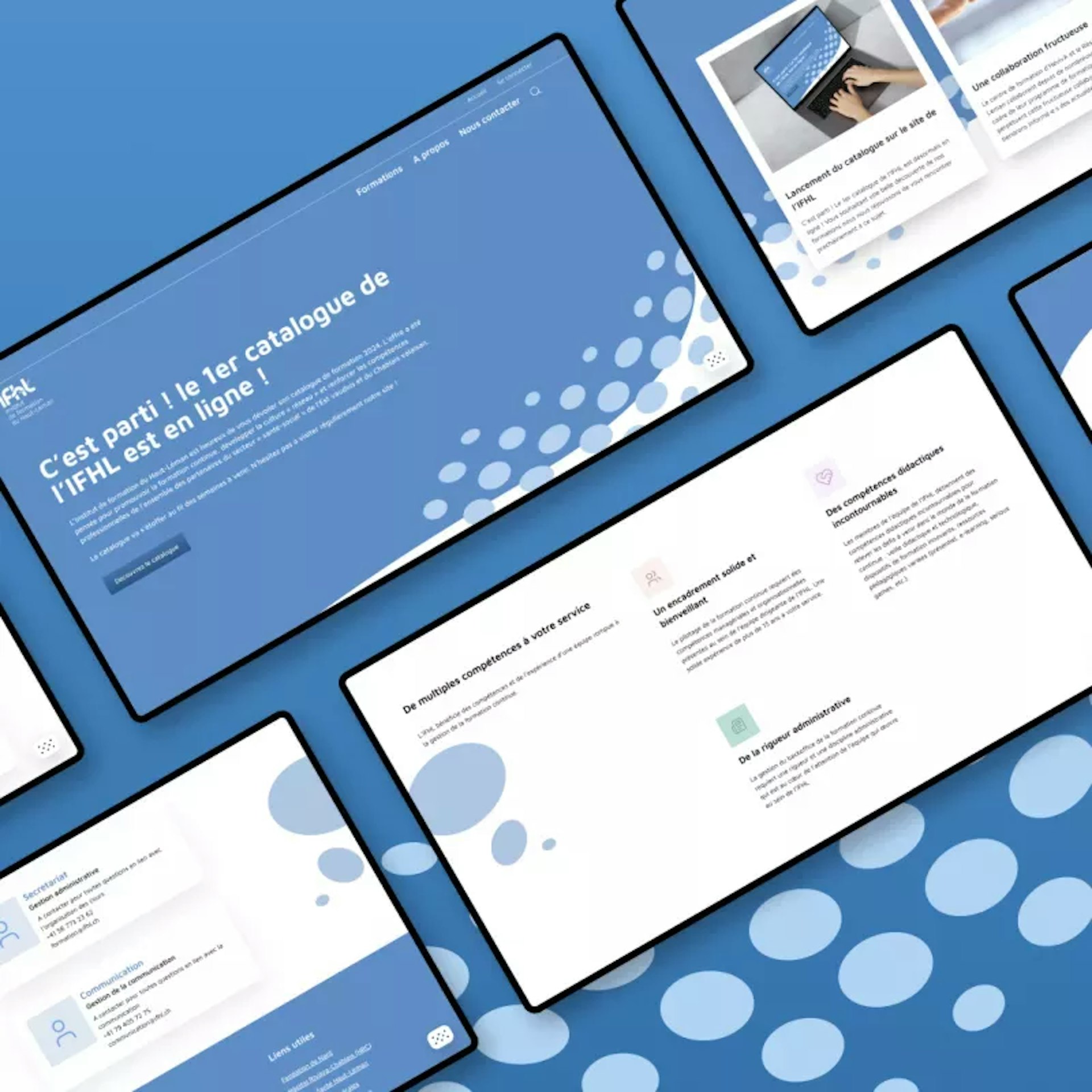
Is 'Made in Switzerland' still a guarantee of competitiveness in the digital market?
Developpement
5 min
From Cayan Frey
Hello Vevey!
Within the agency, we advocate for local sourcing. Everything we create is done in Vevey, at 2 Rue des Tilleuls. Our projects are born and developed in our offices, and we make it a point of honor to respect this aspect.
In the past, we have had experiences with offshore development. Of course, the projects were successful, but what about scalability? What about the working conditions of the company on the other end? What happens when developers come and go on the project? These are many questions we have faced and learned from experience: it's challenging. It requires constant rigor to test, validate, and integrate the elements developed by the foreign company, and the "saved" development hours are caught up in project follow-up or testing.
Reading these lines, you may think I'm stating the obvious. That's true. These lines are the result of observations over the past few months where we have faced rejections of offers for digital solutions, more or less complex. The real reasons (hidden behind technological aspects) were mainly budget, although it appeared after other points that led to our offers not being accepted. It's especially the superficial discourse of these prospects that grates. I have two examples of companies in mind:
- The first one, during various exchanges, introduced us to its business sector. This company operates in the Léman arc and made it clear to us the importance of being Swiss-Swiss and their involvement in the local economy. Of course, it's easier to sell housing that way.
- The second, a company active in the medical field, wants to develop a custom solution for a specific need. Keep in mind that we are not talking about complicated development, but it involves a lot of processes, security, and many iterations are expected to achieve the goal. Here too, Swiss-made is hammered at all levels, and they are the first to be outraged by medical tourism.
In both cases, even with the discourse of "we prioritize local, Swiss companies, etc.," the project slipped away to foreign companies. You will therefore understand the slight frustration and the feeling of hypocrisy that emerge from these calls for tenders.
Of course, we have asked for feedback on our offers and have also internally analyzed what could have been optimized, but we had offers with which we were aligned with our values and comfortable in our sneakers (and come read this article by the way). With over 10 years of experience in the field, I dare to hope and believe that our presentations are well-honed. They are personalized for each client, they are interested in the prospect's field, and in some cases, they offer avenues to explore for the potential future project. We are far from, and it took us time, the traditional offer of "here's the budget, here's the CMS. Sign here."
So what does "Made in Switzerland" mean?
Behind the labels "Swiss Made Software" and "Made Swiss" actually hides a plethora of elements that must be taken into account. Indeed, at Marvelous, we try to instill digital thinking in our clients, we train apprentices in digital, we pay Swiss salaries, and we strive to participate in the Vaud economic fabric.
This is also reflected in exchanges between various Vaud actors, conferences on subjects, and courses for the company's trainers.
So behind the budget lines, all these elements are transcribed. Of course, there are hours listed in proportion to the effort with a rate X, but behind it, there is a real social, economic, and Swiss structure.
The fact that we are also about 30 minutes away from our clients for meetings and exchanges/workshops/status face-to-face is an argument not to be neglected. Of course, confinement and telecommuting have come into play and have significantly changed mentalities, but there is nothing better than "Crazy Eight" with real people in front.

What is our added value?
Over time, we naturally come to question our positioning, our vision, and whether the strategy we adopt is the right one.
Like the price, for low-complexity projects, the observation may be that "Made in Switzerland" is no longer there. "Made in Switzerland" may now translate into support in a digital transition, by high added value in strategic implications, or how to solve a business problem in a given sector. Selling showcase websites today, in Switzerland, while respecting employees, the economic fabric, and committing locally seems difficult and no longer necessarily in line with the times for a company of our size. Competition is fierce, and our internal costs make prices rise quickly.
We have several examples that go in the direction of added value, how to dissect a business problem to find digital (or not) solutions, and we see it with our Gamification for Business department (hello Yuzzzu 👋) that companies are open to this kind of discussion.
The picture is not entirely dark, however. We find that our clients, who are open to this kind of discussion and who have acquired what "Made in Switzerland" really means, have only had projects with great success.
What about the future?
At Marvelous, we will keep our course. We support the local economy and firmly believe in our positioning. Of course, there will be disappointments and frustrations, but the projects we will undertake will be on a sound basis and on a sharing of common values.
The goal for our teams is now to successfully transcribe this added value that I mentioned earlier in the article: how to make it understandable and natural for our future prospects. Of course, and my peers from other agencies will know, the goal is for it to be accessible, "snackable," and well popularized so that it speaks to the widest possible audience.
Aides et outils
For this article, I used text correctors, DeepL for translation, and Dall-e and Artsmart to generate illustrations.
Do you have a business problem and would you like us to dissect it together? Contact us!



